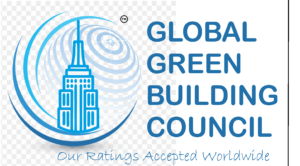A green economy is an economy that targets lessening natural dangers and biological shortcomings, and that holds back nothing without corrupting the climate. It is firmly related with biological financial matters, however has an all the more politically applied center. The 2011 UNEP Green Economy Report contends “that to be green, an economy should not exclusively be effective, yet in addition fair. Decency suggests perceiving worldwide and country level value aspects, especially in guaranteeing a Simply Progress to an economy that is low-carbon, asset proficient, and socially comprehensive.

An element recognizing it from earlier monetary systems is the immediate valuation of regular capital and biological administrations as having financial worth (see The Financial aspects of Environments and Biodiversity and Bank of Normal Capital) and a full expense bookkeeping system wherein costs externalized onto society through biological systems are dependably followed back to, and represented as liabilities of, the substance that causes the damage or ignores a resource.
Green sticker and ecolabel rehearses have arisen as shopper confronting signs of cordiality to the climate and manageable turn of events. Numerous enterprises are beginning to take on these norms as a method for advancing their greening rehearses in a globalizing economy. Otherwise called manageability principles, these guidelines are exceptional standards that ensure the items purchased don’t hurt the climate and individuals that make them. The quantity of these guidelines has developed as of late and they can now assist with building a new, greener economy. They center around monetary areas like ranger service, cultivating, mining or fishing among others; focus on natural variables like safeguarding water sources and biodiversity, or lessening ozone depleting substance discharges; support social assurances and laborers’ freedoms; and home in on unambiguous pieces of creation processes.
Green financial experts and financial aspects
Green financial matters is approximately characterized as any hypothesis of financial matters by which an economy is viewed as part of the environment in which it dwells (after Lynn Margulis). An all-encompassing way to deal with the subject is regular, to such an extent that monetary thoughts are intermixed with quite a few different subjects, contingent upon the specific scholar. Defenders of women’s liberation, postmodernism, the ecological development, harmony development, Green governmental issues, green turmoil and against globalization development have utilized the term to portray altogether different thoughts, all outer to standard financial matters.
The utilization of the term is further ambiguated by the political differentiation of Green coalitions which are officially coordinated and guarantee the promoted Green term as an exceptional and recognizing mark. It is consequently desirable over allude to a free school of “‘green financial experts”‘ who by and large promoter shifts towards a green economy, biomimicry and a more full representing biodiversity. (See The Financial matters of Environments and Biodiversity particularly for current legitimate global work towards these objectives and Bank of Regular Capital for a layman’s show of these.)
A few financial specialists view green financial matters as a branch or subfield of additional laid out schools. For example, it is viewed as old style financial matters where the customary land is summed up to regular capital and shares a few credits practically speaking with work and actual capital (since normal capital resources like waterways straightforwardly substitute for man-made ones like trenches). Or on the other hand, it is seen as communist financial matters with nature addressed as a type of Lumpenproletariat, a took advantage of base of non-human laborers offering overflow benefit to the human economy, or as a part of neoclassical financial aspects where the cost of life for creating versus created countries is held consistent at a proportion mirroring an overall influence and that of non-human existence is extremely low.
A rising responsibility by the UNEP (and public legislatures like the UK) to the thoughts of normal capital and full expense bookkeeping under the pennant ‘green economy’ could obscure differentiations between the schools and rethink them all as varieties of “green financial matters”. Starting around 2010 the Bretton Woods organizations (remarkably the World Bank and Global Financial Asset (by means of its “Green Asset” drive) liable for worldwide money related strategy have expressed a reasonable goal to move towards biodiversity valuation and a more authority and general biodiversity finance.Taking these into account focusing on not less however profoundly zero outflow and waste is advanced by the Zero Emanations Exploration and Drives. The UNEP 2011 Green Economy Report illuminates that “in light of existing examinations, the yearly funding interest to green the worldwide economy was assessed to be in the reach US$1.05 to US$2.59 trillion. To put this expectation in context, it is around one-10th of complete worldwide venture each year, as estimated by worldwide Gross Capital Development.
At COP26, the European Venture Bank declared a bunch of simply change normal standards settled upon with multilateral improvement banks, which likewise line up with the Paris Understanding. The standards allude to zeroing in supporting on the change to net zero carbon economies, while remembering financial impacts, alongside strategy commitment and plans for consideration and orientation fairness, all expecting to convey long haul monetary change.
The African Improvement Bank, Asian Advancement Bank, Islamic Improvement Bank, Committee of Europe Advancement Bank, Asian Foundation Speculation Bank, European Bank for Recreation and Advancement, New Improvement Bank, and Between American Improvement Bank are among the multilateral advancement banks that have promised to maintain the standards of environmental change moderation and a Simply Progress. The World Bank Gathering additionally contributed.


